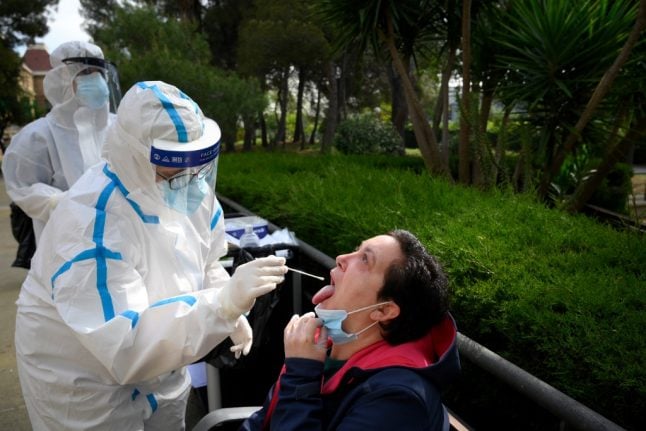Health Minister Salvador Illa announced on Wednesday that a plan had been agreed with regional health authorities and was ready to be rolled out.
“It seems likely that we will be carrying out these tests to help detect more asymptomatic cases, which currently represent between 40 and 45 percent of the new diagnoses,” he said on Wednesday.
Experts had warned that wider testing was necessary to avoid further outbreaks turning into a second wave with the European Centre for Disease Prevention and Control recommending the testing of all close contacts.
Currently in Spain the policy is to trace those who have been in close contact with a positive case and tell them to self-isolate for 14 days. But only those who develop symtoms are offered a PCR test.
“Close contact” is defined by being within two metres of a person for more than 15 minutes or having being involved in their personal care.
But experts fear that the disease could be spread by those who are infected yet show no symptoms.
Illa warned that Spain would have to return to state of emergency measures if outbreaks could not be sufficiently controlled but hoped to avoid a situation that would see the entire country return to lockdown.
“”We believe that if security measures are followed, we can avoid circumstances that would see the need to confine the entire population,” he said.
And he said his ministry was working on the assumption that a second wave could occur later this year and was preparing for it, creating reserves of PPE and testing facilities to be ready to bring it under control.
READ MORE:



 Please whitelist us to continue reading.
Please whitelist us to continue reading.
When will this testing be available? There is no real indication given of dates or where exactly you would go to get access. More info needed.